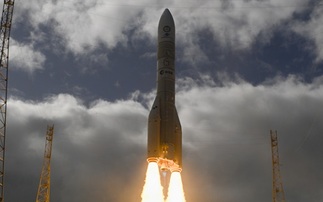Star appears to lack elements like calcium, silicon and magnesium, but does have europium, uranium and gold
A joint team of astronomers in Japan and China have identified a star in the Milky Way exhibiting a chemical composition unlike any other in the galaxy.
In the past, astronomers have noticed the same chemical composition in some stars that are part of dwarf galaxies orbiting the Milky Way. It suggests that the newly found 'chemically peculiar' star was a member of a galaxy that was consumed by the Milky Way millions or even billions of years back.
The star, dubbed J1124+4535, lies about 22,000 light years from Earth in Ursa Major constellation. It was noticed in the survey data of China's Large Sky Area Multi-Object Fibre Spectroscopic Telescope (LAMOST).
Observations of the star with the Subaru Telescope in Japan and LAMOST revealed that it is characterised by an unusually small amount of "alpha elements" including calcium, silicon and magnesium. According to scientists, magnesium is the eighth most abundant element in the Milky Way, but the element was found in only trace amounts inside J1124+4535.
The amount of all alpha elements present on J1124+4535 is just one-fifth of the average of similar stars present in the Milky Way. But, it was found to have surprisingly high levels of europium, uranium and gold compared to other stars.
This is the first time that scientists have observed an element ratio like this in a star in the Milky Way.
"Stars preserve chemical information of their birth sites. We can distinguish stars formed in the Milky Way from stars formed in dwarf galaxies based on their chemical abundances," said Zhao Gang, a professor at the National Astronomical Observatories of the Chinese Academy of Sciences (NAOC).
Scientists believe that J1124+4535 would have become a part of the Milky Way after the collision and merger of star's original galaxy with the Milky Way.
According to scientists, the Milky Way has grown in size over time after consuming several smaller galaxies. Many dwarf galaxies still orbit our galaxy, and it continues to devour gas and stars from its neighbours.
Scientists hope the new finding could help them to better understand the chemical evolution of the Milky Way and its neighbouring dwarf galaxies, and to find out how heavy elements like uranium and gold are created in galaxies.
The detailed findings of the study are published in journal Nature Astronomy.
Computing and CRN have united to present the Women in Tech Festival UK 2019, on 17 September in London.
The event will celebrate successful women in the IT industry, enabling attendes to hear about, and to share, personal experiences of professional journeys and challenges.
Whether you're the ‘Next Generation', an ‘Inspirational Leader', or an ‘Innovator of Tech' this event will offer inspiration on not only how to improve yourself, but how to help others too. The event is FREE for qualifying IT pros, but places will go fast


















